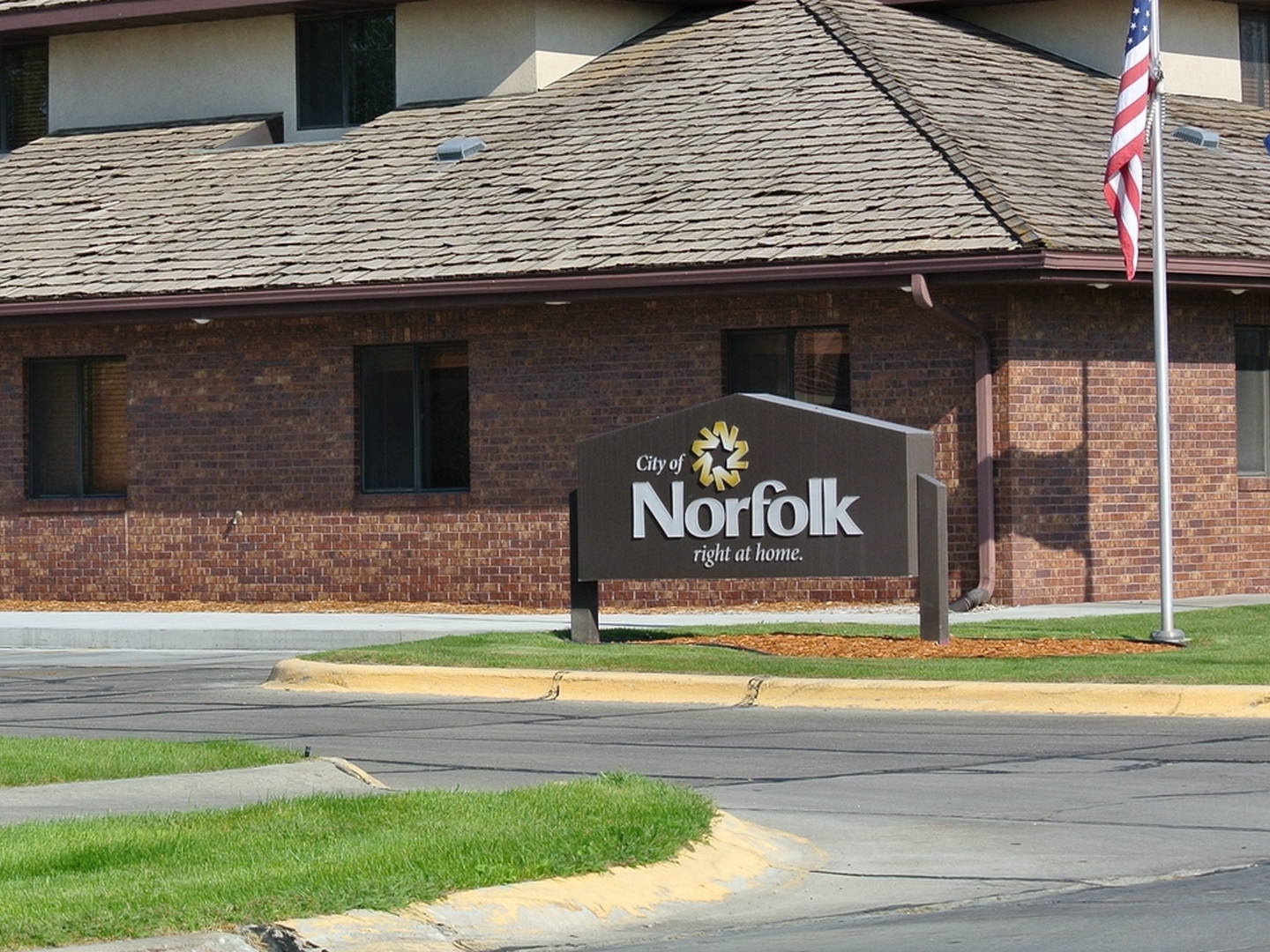Government

About Norfolk
Norfolk is located in Northeast Nebraska in Madison County in the Elkhorn River Valley, 112 miles northwest of Omaha, 121 miles north of Lincoln and 75 miles southwest of Sioux City, Iowa. U.S. Highways 81 and 275, and Nebraska Highways 24 and 35 intersect in Norfolk. Norfolk is only 15 miles from Madison, Nebraska, the county seat of Madison County, which is governed by a three-person Board of County Commissioners. Norfolk accommodates several branch offices for Madison County as well as a separate State Highway Patrol Center and serves a 23-county area.
Norfolk is the economic center for an area encompassing six counties. Basic economic activities of Norfolk are manufacturing, farming (both livestock and grain), education, retailing, and wholesaling. Manufacturing employs over 4,059 persons. Norfolk is the major retail trade center for Northeast Nebraska.
On July 17, 1866, a three-train caravan of prairie schooners, carrying 44 German families from Ixonia and Watertown, Wisconsin arrived at the junction of the Elkhorn and North Fork valleys where they were attracted by the rich land open for settlement. These pioneers were joined by others from Wisconsin, and formed the community that later became Norfolk.
In 1881, the Village of Norfolk was organized. The settlers proclaimed “North Fork” to be their permanent post office address, named after the river, but accounts differ on the exact name: "Northfork", "Nor'fork", and "Nordfork" are all suggested. The name was submitted to federal postal authorities, and at some point was changed to "Norfolk".
Governmental Structure
The City of Norfolk has the Mayor-Council form of government. The Mayor is elected at large by popular vote of the people for a four-year term. The City of Norfolk is divided into four wards, each ward represented by two council members making a total of eight council members. Every two years four of the council seats are open for election (one seat in each ward). The Council member must be an elector in the City and reside in the ward from which he or she is elected.
Authority and responsibility for legislative acts are vested in the Council. The Council has the authority to limit debate on any subject and act in good faith for what, in its opinion, constitutes the best interest of the community. The purposes of Council meetings are to hear public expressions, debate openly, inform the public what the City is doing and decide public issues.
The Council elects one of the Council members as president and, in the absence of the Mayor, the president presides at meetings of the Council. Normally the Mayor presides at all City Council meetings and has the right to vote when his or her vote shall be decisive on any pending matter. He or she has the superintending control of all the officers and affairs of the City and must ensure that the ordinances of the City and provisions of law relating to the City are complied with. He or she may administer oaths and signs the commissions and appointments of all the officers appointed in the City. The Mayor has the power to veto any ordinance, by-law, resolution, contract, or the allowance of any claim. The Council can override the Mayor’s veto by a vote of two-thirds of all members elected to the Council.
The Mayor and Council in Norfolk are not full-time officials; they retain their positions in private industry, business or chosen profession. Since the Mayor and Council do not function on a full-time basis, a City Administrator is appointed to carry out the directives of the Mayor and Council and manage the affairs of the City. This form of government combines the abilities of a professionally trained administrator on a full-time basis with the interested and dedicated services of elected officials.